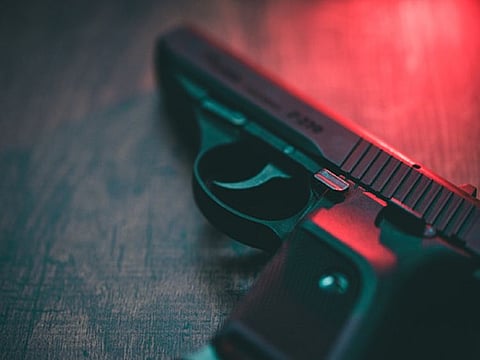Israelis rush for gun licences after series of fatal shootings
Surge in gun-ownership raises risk that future outbreaks of violence could be deadlier

Tel Aviv: A spate of shootings has triggered a rush for gun licences among Israelis, almost a year after the country’s tense cohabitation between Jews and Arabs exploded into communal violence.
“Those of you who have a licence to carry arms, this is the time to carry it,” Prime Minister Naftali Bennett said after five people were shot dead near Tel Aviv on March 30.
Israel’s Public Security Ministry said it had received more than 14,000 gun licence requests since the first attack in Beersheba on March 22, compared with an average of about 9,000 applications in a normal year.
Fourteen people have now been killed in four attacks carried out in Israeli cities over the past three weeks by Arab citizens of Israel and Palestinians from the Israeli-occupied West Bank. The violence coincided with an unprecedented summit with four Arab foreign ministers which Israel hosted on March 27, serving as a jolting reminder that its 73-year-old conflict with the Palestinians remains unresolved.
The peace process has been stalled for years, leaving millions of Palestinians in the West Bank and Gaza Strip in stateless limbo.
The involvement in the attacks of Arab-Israelis, who mostly identify as Palestinian and complain of discrimination, raised the spectre of renewed communal violence a year after Israel’s 11-day war in Gaza spilled into fighting between Arab and Jewish civilians on the streets of several mixed cities.
About 2 per cent of Israel’s population, including 150,000 private civilians and 40,000 people who work as guards, already have the right to carry a firearm.
Most licences in Israel are for pistols, not automatic rifles, and regulations for obtaining them are already strict, said Simon Perry, a criminologist at Hebrew University. Experts have warned, however, that a surge in gun-ownership among civilians raises the risk that future outbreaks of communal violence could be deadlier and harder to contain.
All Israelis are required to complete military service and have experience handling weapons. But Shaike Horowitz, a reserve brigadier general and fellow at Reichman University’s International Institute for Counter-Terrorism, said restrictions should be further tightened to ensure that gun-holders undergo training in what to do - and not do - in the event of a violent incident involving many people.
“The frightening thing is that everyone could pull out his gun and mistakenly civilians will shoot civilians,” he said.
Sign up for the Daily Briefing
Get the latest news and updates straight to your inbox

